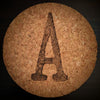If you know me, or my products, you can tell I like essential oils. They have a true scent that is very literal. Lemon oil smells like a slice of lemon. Pine smells like walking through a Christmas tree lot.
Metaphorical scents really annoy me. What exactly is a "moonlit path" and why does it smell that way? Why do so many products labeled vanilla smell so nauseating and fake? A lemon candle from many places smells like floor cleaner. Most Christmas tree candles smell like, oh, floor cleaner again. Every candle at shopping mall chain stores are overwhelmingly sweet and smell like nothing natural.
With essential oils, you're either steam distilling or solvent extracting a plant's leaves, seeds, fruits, pulp, flower buds, and so on. That process, however, can be incredibly time consuming and labor intensive, not to mention the sheer volume of product it takes to distill an ounce of the oil. You see a vast difference in price for essential oils that come from readily available plants like pine or citrus, and an exorbitant jump for things like ylang ylang flower, palo santo, or even lavender.
Those oils do have beneficial properties for aromatherapy, safe topical applications, and safe diffusers. Where they fail, however, is heat and light. Heat breaks down the volatile compounds in essential oils to where even a good oil, in a quality candle, can create off smells when made and lit. Strange chemical reactions have been reported by manufacturers of ingredients.
Can you melt some wax and just add essential oils? Some makers claim they do. I won't lie: I don't!
I use specific oils made for candles, body products, and essential oils where possible. Here's a breakdown:
Hand sanitizer: this is a cold process and no heat is needed. Also, I use dark bottles to keep the scent protected. The dermal load, or safe body amount, is one percent so that is what's mixed.
Candles: it would be misleading to write "made with essential oils" on my candles, because they are a combination of candle-safe oils created from a combination of essential oils and lab-created molecules that mimic scent. In my last blog, I mentioned that sandalwood is an endangered species. But if scientists can put a drop of sandalwood essential oil, then recreate it without the environmental degradation, I have to applaud that. You can disagree. Why do you hate trees? Just kidding.
I have 100% seen that claim on candles, and they are either lying or bad at making candles. Sorry.
Soap: I use both! Again, the fragrance in some of my soaps is the same as listed above in candles. Not all are safe for skin, and the manufacturers clearly label and I color code my bottles with red and green tape. A natural product like cinnamon is not safe for skin. It smells and tastes great, but burns when applied topically. Don't try that at home!
The essential oils I do use in soap, lotion bars, and other products are labeled and I hope it's clear. Most essential oil disappears in a hot process like soap, which I feel is wasteful. It took so much plant product to create that oil, and most evaporates as the soap superheats in the chemical reaction that is saponification, or oils converting to soap. Wax is heated so much when a candle is lit that barely anything would be left once you burn it.
So is natural fragrance always better? Of course not. Are all synthetics evil? Not if used at safe levels.
For my skin's sake, I like a light fragrance. I use fragrances in my body products at a light level. In the shower, you're in a small contained space. Products also linger on the skin so it's best to be judicious.
For candles, I go all out. I use the maximum amount of fragrance as permitted by the oil and the wax, which is three times the minimum. Most mass market candles use the minimum to keep costs down. The raw ingredient cost on my candles breaks down to more for the fragrance oil in the jar than the wax, even though it's mostly wax. Yet we use them differently than a soap, in a larger space, in a different way.
As always, email me with any questions at allisonsgoods@gmail.com. I'm sure I'll have more to say about this topic and will write follow ups, so let me know what you want me to research!

